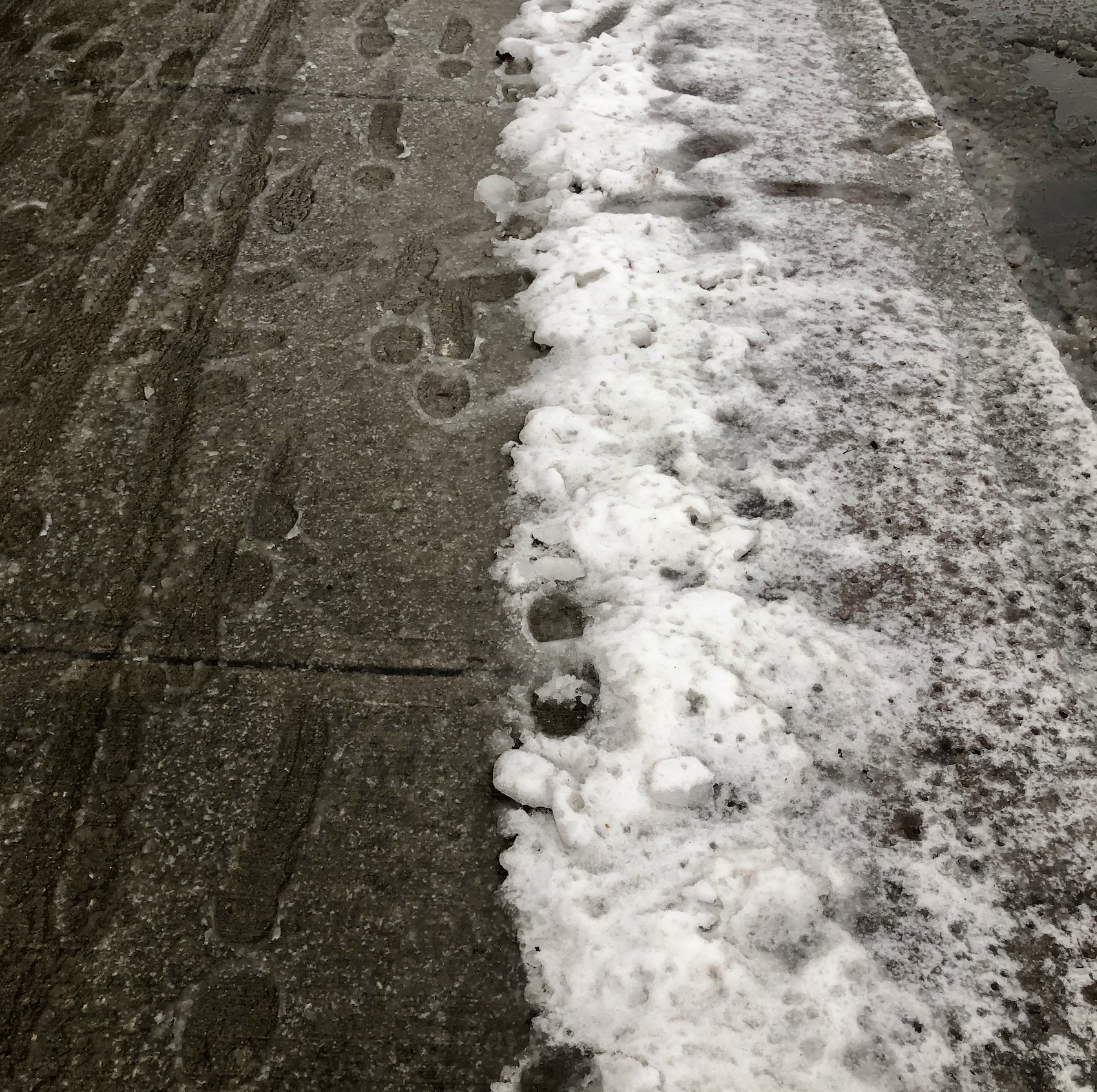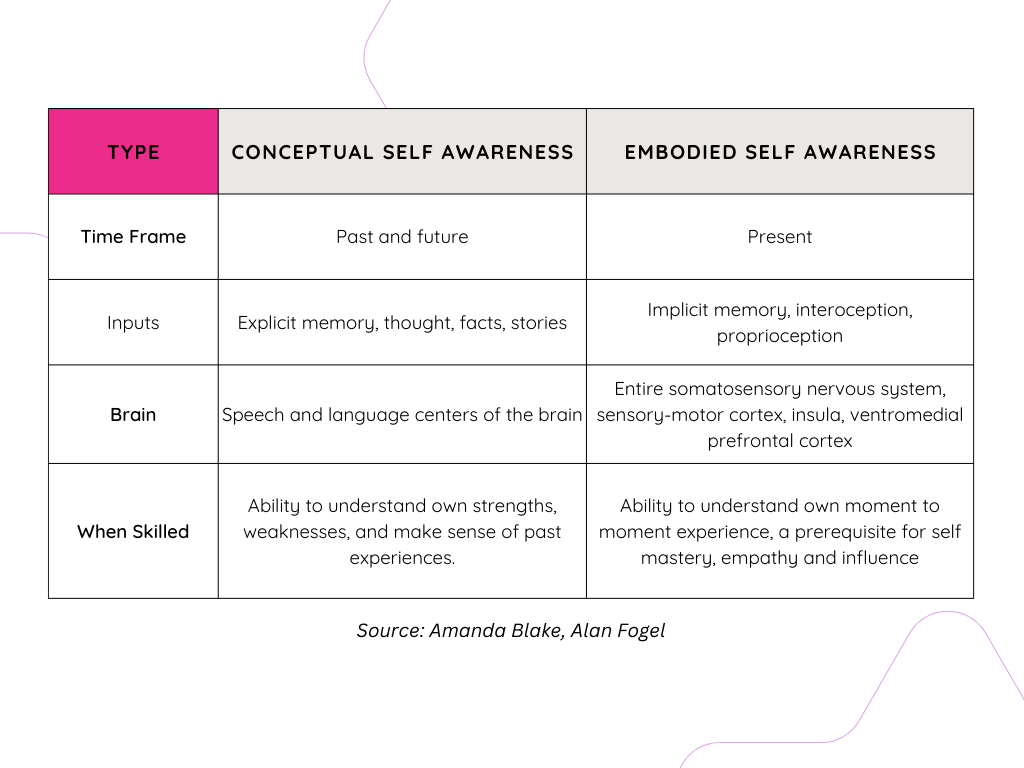Increase this and change your life.
The following story first appeared in my newsletter. Subscribe for free using the box at the bottom of this page.
Here is something you may not know about walking on fresh snow.
I’m talking about an inch or two of wet, slushy snow - the kind we got this week in Toronto, Canada.
Wearing good boots helps of course.
But even with that, when the conditions change outside, you must change how you walk outside.
What I noticed - to navigate the fresh snow - I had to:
shorten my stride
plant my front foot more tentatively
push off my back foot less strongly
These were subtle shifts that my body made because, I couldn’t keep walking the way I normally would had I been lucky enough to enjoy a sunny, warm, dry day.
It’s not something I consciously thought about.
My body naturally adjusted to the conditions outside to help prevent me from falling flat on my face (thank you body).
I only noticed exactly what I was doing because I decided to pay attention to it.
Why am I talking about snow in a newsletter about leadership?
Especially because you might be reading this newsletter in sunny North Carolina or Florida (I know some of you lucky ducks are on here).
Because things are constantly changing for you as leaders.
And the way you approach changing conditions matters.
Just like walking in snow, your body is going to have an automatic reaction to change and uncertainty.
Maybe you freeze like a deer in the headlights.
Maybe you bolster forward, eyes narrow, without taking in the full environment.
Maybe you take a more passive approach, waiting for someone else to take the lead.
Your body will react first.
And then your mind will try to make sense of it.
Without awareness, your body might be leading an approach that isn’t entirely helpful.
Especially because for most of us, change and uncertainty tend to activate our fight, flight, freeze response - an automatic response to stress that doesn’t usually promote our best thinking.
So what can we do?
The key is to develop what is called embodied self-awareness.
Here’s the down-low: Essentially there are two types of self-awareness defined by Alan Fogel, PhD
conceptual self-awareness - the ability to THINK about ourselves.
embodied self-awareness - the ability to EXPERIENCE ourselves
I am not undermining the importance of conceptual self-awareness.
If we can get good at conceptual self-awareness, we can use our mighty introspective logic and reasoning muscles to:
reflect on our past experiences,
contemplate our future goals
identify our strengths and as well as our opportunities for development.
But the problem is - we often get conceptual self-awareness wrong.
According to Tasha Eurich PhD, the mind rarely operates in a rational fashion, and our judgments are seldom bias-free. We tend to jump on any so-called "a-ha moments" without checking if they're accurate and we ignore stuff that doesn't fit into our preconceived ideas.
This opens us up to the need for a whole other type of self-awareness…
one that doesn’t rely on the fallacies of our cognitive mind.
one that also largely gets ignored in traditional leadership development programs
This is what Alan Fogel calls embodied self-awareness - the ability to pay attention, in the present moment to our sensations, emotions, body, and movements, without - and here’s the kicker - the need for judgment, interpretation or the thinking mind.
Embodied self-awareness means to develop awareness of what is happening right now, in this moment, in our inner world.
Instead of logic and reasoning to describe our world, we use interoception and proprioception to sense our world.
Instead of analyzing, we experience.
Instead of telling through language and storytelling, we feel.
Why does this matter?
Well it matters for a few reasons which I’ll continue to explore in future newsletters but to give you a few highlights:
Our current experiences drive our future behaviour. It’s precisely what we are experiencing NOW in our inner world which drives so much of our automatic and reactive behaviour. 90% of what we do happens on auto-pilot in reaction to what we are sensing and feeling in our bodies.
Our current experiences drive how we relate to others. That automatic sensing and feeling affects how we show up with our family, our loved ones, our teams.
We only have the present. We can reflect on the past and learn from it but we can’t change it. We can dream about the future and imagine it but we can’t control it. The truth is the present moment is all we have. The choices we make in this moment and the next one are the only things we can truly control.
The bottom line is that if we can connect more deeply with what is happening right now we can direct our behaviour TODAY and affect our outcomes in the future.
Let me put it this way.
Stuff is always happening inside you. There is a world of emotion, sensation and information in there. Most of it is happening unconsciously and how well you navigate what you are feeling and sensing depends on how much you are aware of it.
It depends on your level of embodied self awareness.
How do you know if you need to get better at this?
Ask yourself this.
Are you happy with the results you are getting. Whether that’s in your personal or professional life? Are you satisfied with the outcomes you are generating?
If so, keep ticking along because what you’re doing unconsciously is already working for you
If not - if the results you’re generating aren’t actually want you’re wanting, whether that’s in career, family, health, wealth - than increasing your embodied self awareness will be KEY to creating change.
How do you get better at it?
The truth is most of us are not great at this stuff.
For a number of reasons, including our culture’s limited appreciation for our bodies, we don’t prioritize or value this type of intelligence.
Developing embodied self awareness is something that takes practice.
And it can be done.
Want to learn more!! Join me!!
If you identify as a woman, this one is for you. Join me for a FREE Masterclass where we will dive deep into all this stuff so you can lead yourself and others to meaningful change.
Join me every Friday, for a fresh edition of this newsletter. I'll drop some new ideas, including practical stuff you can actually use because, trust me, change doesn't come from just knowing things. It's all about putting this into practice.
I help visionary leaders and teams be at their best more often so they can do their best work.
As a leadership coach, and former yoga and mindfulness teacher, I help leaders access the intelligence of the body in generating that transformation.
My free newsletter helps you accelerate your leadership growth so you can drive business change and achieve better results.



